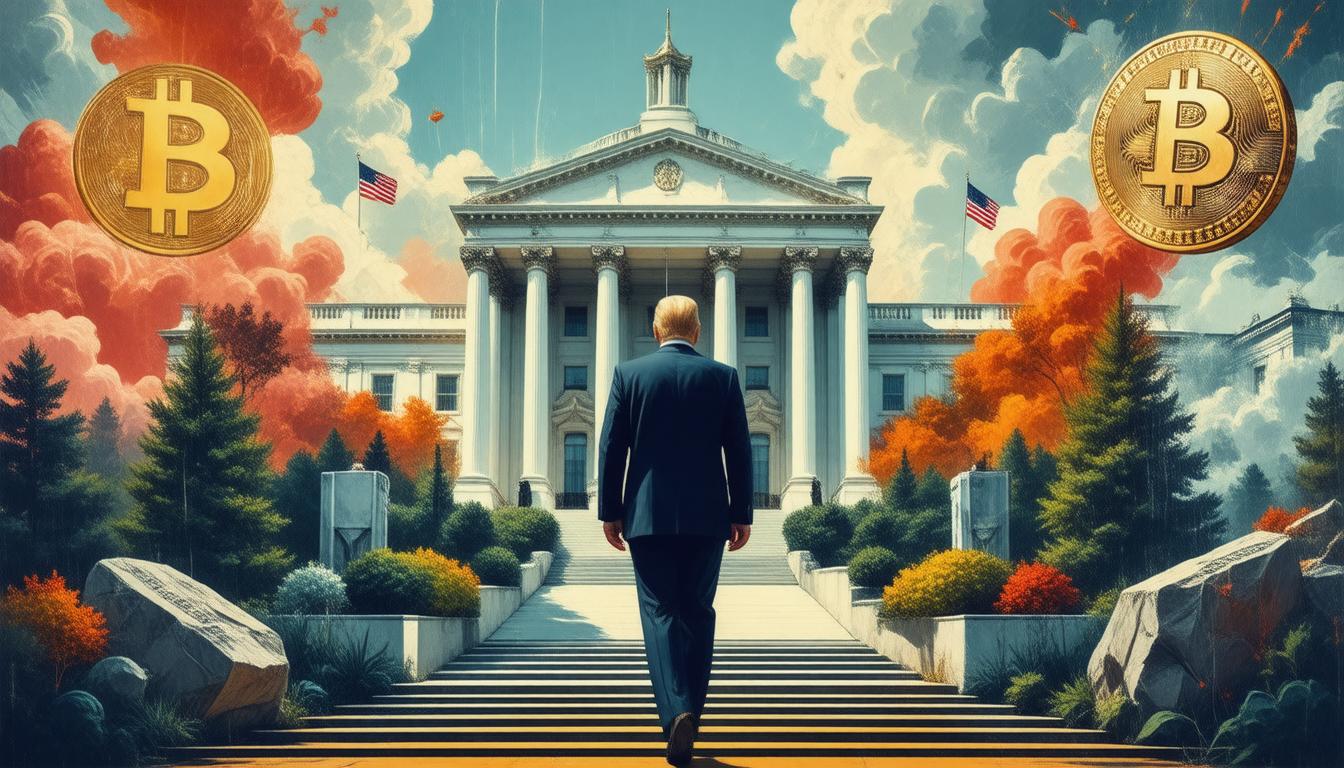Michael Barr Steps Down as Federal Reserve’s Vice Chair for Supervision
Washington, D.C. – Michael Barr officially announced his resignation as the Federal Reserve’s Vice Chair for Supervision on Monday, signaling a potential shift in U.S. regulatory attitudes towards the cryptocurrency industry. While Barr will continue to serve as a member of the Federal Reserve Board of Governors until February 28, his exit has been welcomed by proponents of digital assets, who view it as an opportunity for more favorable policies in the burgeoning sector.
In a statement regarding his departure, Barr cited “dispute[s] over the position” as the driving factors behind his decision, although the specifics of these disputes were not disclosed. His resignation arrives amidst a politically charged atmosphere as the U.S. federal regulatory landscape prepares for the forthcoming inauguration of pro-cryptocurrency President-elect Donald Trump later this month.
Reactions from the Crypto Community
The news of Barr’s departure has elicited a positive response from various sectors within the cryptocurrency community. Samuel Armes, founder of the Florida Blockchain Business Association, declared the resignation a notable victory for the industry. “Barr stepping down is a huge win,” he stated. Armes emphasized the need to remove officials perceived as unfavorable to the crypto space, particularly those associated with the previous administration under President Biden and Senator Elizabeth Warren.
As the second-highest official at the Federal Reserve, Barr played a critical role in overseeing the U.S. banking system and was a strong advocate for establishing regulatory frameworks—referred to as “appropriate guardrails”—for the digital asset market. These frameworks came in response to increasing concerns regarding the safety and stability of the financial system in relation to cryptocurrency transactions. However, his tenure faced criticism from crypto insiders who felt his policies contributed to a restrictive environment for digital asset firms.
The Challenges Facing Crypto Firms
Notably, many cryptocurrency exchanges depend on banking services to facilitate transactions, allowing their customers to trade digital assets seamlessly. In recent years, however, there has been a noticeable decline in banking accessibility for some crypto businesses. Critics within the industry, such as Patrick Liou from Gemini, argue that Barr’s influence played a significant role in the debanking of crypto firms, further complicating their operations in the U.S.
“The environment for the crypto industry the last four years in the U.S. has been untenable,” Liou asserted. He highlighted the sentiment among many professionals in the sector who believe that governmental pressure has shaped financial institutions’ reluctance to engage with cryptocurrency companies.
Implications of Regulatory Changes
Barr’s exit comes shortly after other significant shifts in the regulatory framework surrounding cryptocurrencies. Notably, Gary Gensler, the SEC Chairman known for his strict policies towards digital assets, and Commissioner Jaime Lizárraga have also indicated they would resign once President-elect Trump takes office. In addition, a recent meeting of the Senate Banking Committee to reappoint SEC Commissioner Caroline Crenshaw was canceled, indicating further potential shake-ups in regulatory leadership.
Nonetheless, experts caution that while changes in key positions like those at the Federal Reserve and SEC are crucial, they represent only a fragment of a larger puzzle in improving the conditions for cryptocurrency businesses in the United States. Austin Campbell, an adjunct professor at NYU Stern, noted that other regulatory bodies, including the Department of Treasury, IRS, and FinCEN, hold significant authority over policies that impact digital asset activities.
“Getting U.S. banking regulators to embrace technological transformation so our banking system can join the rest of the world using modern technology is a much bigger hill to climb,” Campbell concluded.
As the cryptocurrency landscape continues to evolve, industry advocates remain hopeful that the upcoming changes in U.S. federal regulatory leadership will lead to a more favorable environment for growth and innovation in the digital asset sector.










